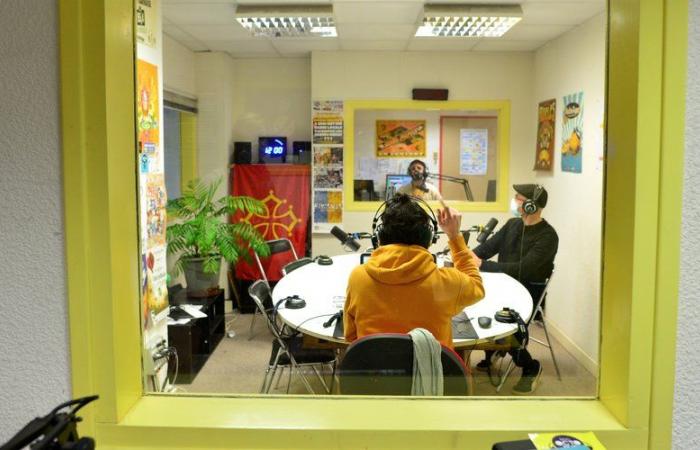the essential
In the 2025 finance project, the government intends to reduce aid to community radio stations by 30%. On the Tarn antennas, there is great concern for the future.
“Obviously we are in a more than complicated situation. Never has a government wanted such a reduction in the Radio Expression Support Fund (FSER). You can imagine, a 30% reduction on a subsidy which provides 50% of our budget, it’s heavy, too heavy for us.”
The station director of Radio d’Autan, Carla Caldeira, is the voice of general concern among community radio stations. What they don’t understand is that despite a stable culture budget, it is they, the smallest ones, who are the most impacted.
“If everyone had been affected, we would certainly have understood better. But it is only us who are affected,” she adds. You should know that of the 12 million savings requests requested from the General Directorate of Media and Cultural Industries, 10.4 million are supported by local associative radio stations.
Fear of dying
Radio d’Autan, better known as “R’D’autan” has been broadcasting in the region for 40 years. “Our model is being undermined, supports the antenna director. Our radio station has three permanent employees. With this historic drop, it’s one position less. Like all the other colleagues, we will no longer be able to implement places the projects supported by this Fund We have signed an agreement which requires us to carry out a local social mission, actions in our territories.
Same observation for Radio Albigés, a collective media for local action since 1981. “Albigés has five permanent employees and dozens of volunteers,” explains a member of this local Tarn radio station. “With this unprecedented decline, it is our model which is in danger. We have public service missions in our specifications. Without this money, we will no longer be able to carry out all of this.
What to do in the face of this sharp cut? “Already, we hope that the government will reverse course,” says Carla Caldeira. “If this is not the case, we will only have to increase our advertising budget, even though we are anything but a commercial radio station. “The entire sector is very worried about this decision which we do not understand.”
A real public service mission
For Hugues de Vesins, president of the CFM radio associative network, which covers four departments including Tarn (with antennas in Cordes and Lacaune): “it is quite simply the planned death of associative radios by Bercy”.
He adds: “Contrary to what it had announced, the government is not attacking the richest but the poorest in the media. It is not taking our territories into account and is continuing the offensive against rural territories.”
The president of CFM is not angry. “We will further reduce social ties with less support for cultural actors, less media education for the youngest, less local information. In short, months of radio from Here.” The worry is general with this real fear of slowly disappearing.






